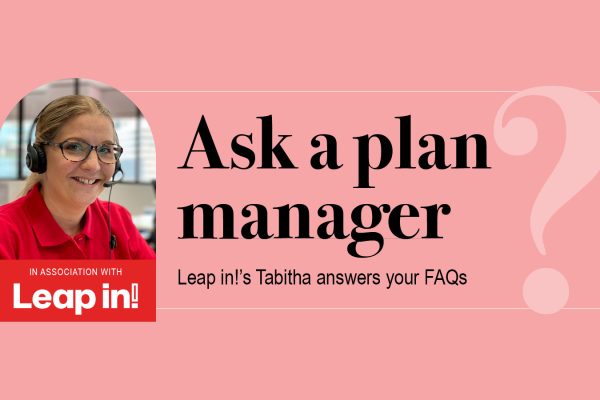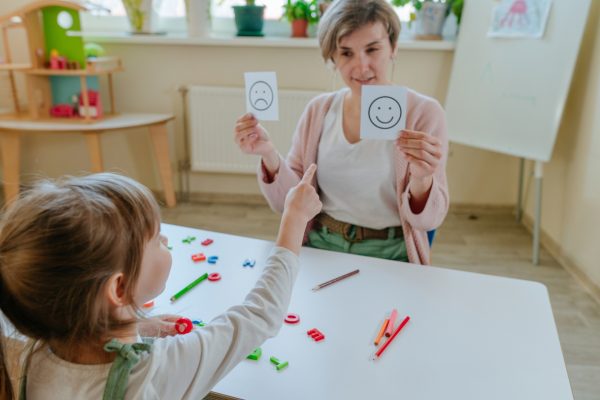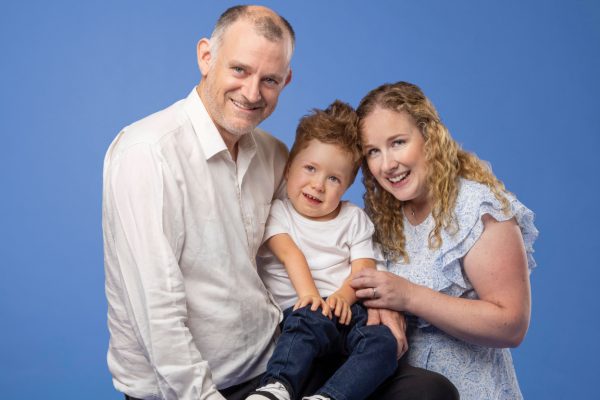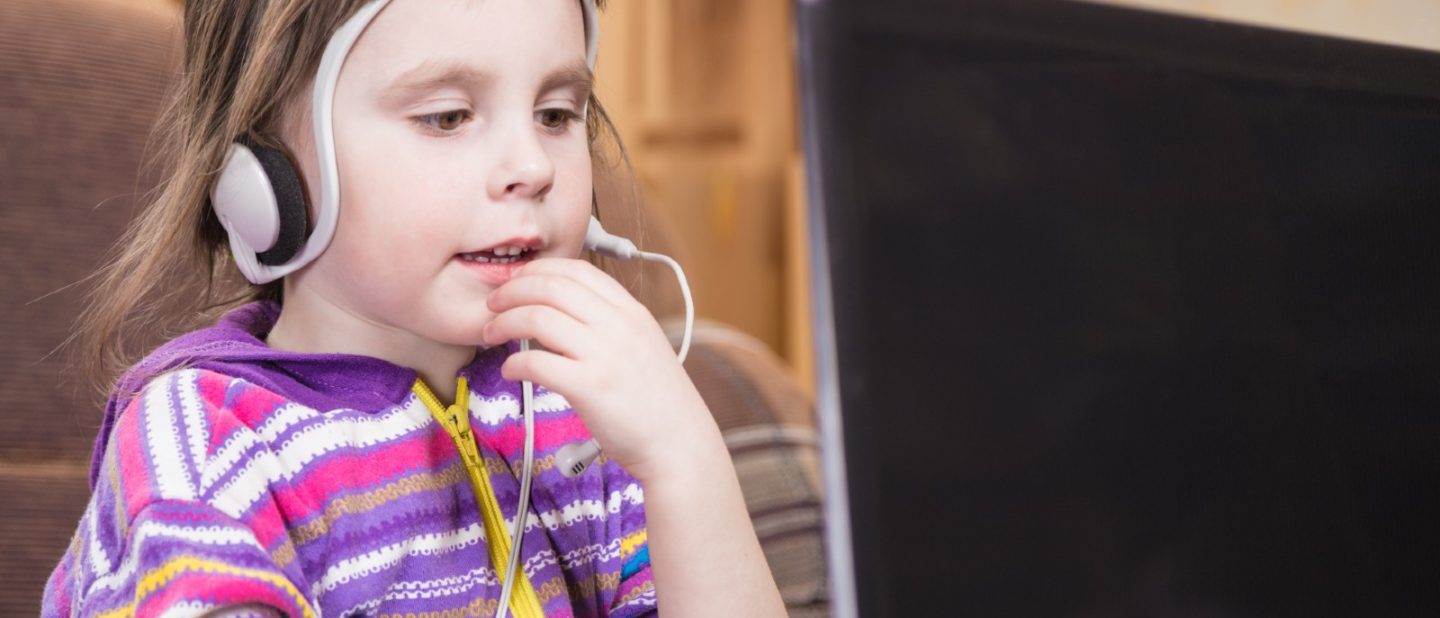
How to keep your child with a disability safe online
By Susie Hopkins
Having to juggle work and caring for my son Harry, who’s seven, during lockdown over the last 18 months, I’ve had no choice but to rely on screen-time so much more than I would like. It’s a Godsend in one way, but a source of so much worry as well. But as his sole parent, I have accepted that I just have to do whatever works right now.
I still worry about how it impacts him though. Even the ads he’s exposed to while using a harmless colour by number app are worrying. Ads about weight loss, for example, are giving him messages that can be so damaging.
Harry is autistic and his disability and care needs are significant. Though he’s seven, developmentally in many ways he’s still only four(ish) and because he’s autistic he sees the world in a very black and white way. This means he is particularly trusting and therefore vulnerable to the dangers of the world around him and especially the internet.
He believes most things he hears and sees online, so I’m constantly educating him about what is real and what isn’t and how the internet works. Balancing preparing him for a world that can be dangerous and unkind and allowing him to believe it is a kind and caring place is not easy.
He thinks that ‘robbers’, in other words people who steal things, only exist in movies. I gently tell him that people do sometimes steal things but that usually it’s because they’re in need. But there are far more sinister dangers than confronting content that our kids can be exposed to online.
As parents, we hear about the dangers to kids online, yet the internet is an integral part of their world and can also provide a number of benefits. Below, I describe what the risks are to kids online and simple steps you can take to make sure your child is as safe as possible.
I feel incredible relief that I’ve taken precautions to make sure Harry’s safe online when I can’t supervise him though I still do when I can. Researching this topic was a blessing and I pleasantly surprised it wasn’t difficult or very time-consuming to set up some precautions.
What are the risks to children online and what can you do to protect them?
- Children can be targeted sexually.
You may have heard that children can be ‘groomed’ online by sexual predators. This is the term used for befriending a child and building up their trust with the intent of exploiting them and causing them harm. It is frighteningly common online though most parents aren’t aware of the danger their kids are in.
As this article explains, “Online child exploitation has soared from 1000 Australian cases to 17,000 in a decade” and these are only the reported cases. The numbers are much, much higher. The risk is not just on social media but is also on gaming and messaging platforms.
For younger children, having a passcode on devices is generally enough to prevent your child from being able to access the internet unsupervised. But as they get older it becomes more difficult. There are parental controls for different devices that can reduce the risk to your children.
Step by step guides are provided in the link above.
As well as these filters, which do have some limitations, different platforms have parental controls as well. Netflix has parental controls that are in the ‘account’ section. You Tube has a dedicated You Tube Kids App that has additional controls. For more info about how to set up parental controls on other Apps and search engines, such as Safe Search on Google, go here.
There are also privacy settings on many apps and games. Social media platforms such as Tik Tok, Instagram and Facebook have strict privacy settings as do social gaming platforms such as Minecraft, Playstation and Nintendo. For simple, step by step information about how to set up each of these go here.
Involve older children in the setting up of privacy settings and educate them about how easy it is easy to pretend you are someone else online. This is especially important for kids that are trusting to a fault like my boy.
- Children can be exposed to harmful content.
Types of content that are harmful include:
- Excessive violence
- Sexist and racist content
- Misinformation and
- Content that may incite self-harm or suicide.
Common Sense Media is an excellent source of information and reviews for Apps, platforms, games and other media such as movies, TV shows and books.
To protect older children, having conversations with them about what is and what isn’t safe and appropriate content is important and will help them to develop healthy internet use habits. Children are more likely to respect restrictions if they understand the dangers.
By creating boundaries around device and internet use you are helping your kids to create healthy screen-time habits. Be mindful of your own device use as we must also role-model healthy device use behaviours.
It’s important to ensure some spaces are internet and device free such as:
- The dinner table during meals
- Areas and places for rest and sleep
- Areas and times for homework and
- Areas and times for more physical types of play and activities
It’s especially important that there are clear rules in regards to screen-time for older kids late at night. The complete lack of supervision when you’re asleep means harmful content is more likely to be viewed. Disordered sleep is also very common amongst adolescents because of device use late at night.
- Older children may be at risk of sharing very personal information
Types of personal information they may share includes:
- Gossip or harmful information about themselves or their peers
- Private information, photos or videos that may be embarrassing or intimate
- Sexual photos or videos of themselves
- Contact information
- Financial information
Kids need your help to fully understand that once they have posted something on the internet (or sent it in a text message) they can’t control who sees it. Ensure that they fully understand that they must never post images or info that has the potential to be embarrassing or is very private.
Also explain how damaging it is to be abusive online. Kids with behavioural problems are especially vulnerable to posting angry content and regretting it later. This is because emotion regulation is often difficult for these kids.
Explain these risks in an age-appropriate way. It can be really helpful to spend time online with your kids as you educate them about how much you can find out about others on the internet. You can even do some experiments with your child to demonstrate how sharing information with just one person unfortunately does not guarantee that what they share won’t be shared publicly.
- Children may be bullied by their peers and strangers online
Open communication with your child is important so that if they are bullied in any way, they are more likely to tell you. Let your child know that if they ever feel upset, scared or uncomfortable because of something that happened online they can talk to you about it and they will not get into trouble.
Instil in them just how important it is to tell you or another adult they trust about anything that happens online that worries them or makes them feel uncomfortable. You can report inappropriate behaviour online here.
Make sure that you are tuned in to your child and, as much as possible, the way they are spending their time on-line. If they are suddenly online a lot more (or the door to their bedroom is suddenly always closed for example) ask them how they are getting on and if everything is OK.
Be aware of their behaviour more generally and whether they appear withdrawn, distressed or more secretive than usual. Teasing out what is going on for kids with complex needs is not always easy but this can be even more important when it comes to the dangers kids face online.
Regularly spending one-one-one time doing an activity that they choose can be a great way to foster greater connection. This is essential to ensure your child feels comfortable sharing their concerns and that they have the opportunity to do so when the time is right for them.
Intentionally fostering connection between you and your child is the bedrock of helping them navigate the complex and sometimes dangerous world we live in. It is crucial at all ages but particularly as they get older and they naturally pull away. This is when they become most vulnerable both on and offline.
Keeping your kids safe is only possible by engaging with them meaningfully and taking an interest in their lives in an ongoing way. With so much of their time being spent online in this day and age, guiding them on how to use the internet safely as they move through childhood and adolescence is essential.
Reference – https://www.who.int/publications/m/item/covid-19-parenting-keeping-children-safe-online
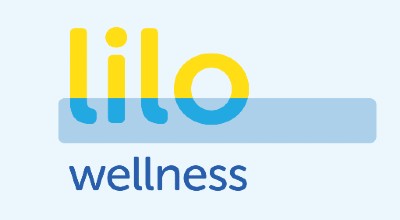

Learn how to feel less stressed in under an hour
A FREE crash-course for parents of kids with special needs – Because when you’re less stressed your whole family benefits.
Specially designed for time-poor parents and carers, this concise course is packed full of actionable insights to help you create a life with less stress for the whole family.
It has been created by Susie Hopkins who is a Registered Nurse, has a Masters of Public health and yoga and mindfulness qualifications. She has been teaching stress management for almost 10 years and is also the sole parent of an autistic child.
Click on the link above for more information.



